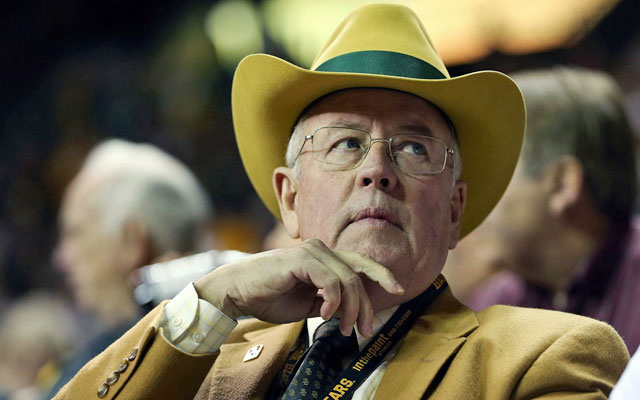It’s official: Baylor University is the master of subterfuge. At a time when sports media is ever more scrutinous of allegations of sexual assault and misconduct by high-profile players, Baylor managed to keep its case of sexual assault away from the headlines. One of the best college football programs in the United States, Baylor managed to bury not only the sexual assault, but also hid the subsequent cover up, despite media inquiries. In October of 2013, a Baylor Bears football player—Sam Ukwuachu—allegedly raped an unnamed female student.
Despite the substantial amount of evidence against him, Ukwuachu was found innocent by the university. The school, according to the New York Times, never asked for the rape kit, which showed evidence of bleeding, redness, and violent friction. Unfortunately for the survivor, the school did not give her any recourse measures or justice. Publicly, Baylor said nothing about the incident. In June 2015, the Baylor defensive coordinator simply said that Ukwuachu had some “issues” but would play the season. It wasn’t until a week before the trial that anyone outside of the affected parties and the University even knew about the sexual assault case. Ukwuachu ultimately lost the case and was sentenced to jail for sexual assault.
Baylor only issued a response to the sentencing in the form of a letter released Feb. 7, 2016, the day of Super Bowl 50. The letter, written by Baylor President Ken Starr, states: “Last fall, Baylor University’s Board of Regents initiated a comprehensive external review of the University’s response to previous reports of sexual violence. Pepper Hamilton, one of the nation’s most experienced law firms with expertise in the institutional response to all aspects of sexual misconduct, is conducting this review.” Starr, at least on the surface, wanted to show that he rectified the issue by improving the process by which the school handles reports of sexual assault. The problem with the letter was that Starr released it on a day when any news not concerning the Super Bowl fell into a vacuum. Starr almost certainly knew this, given his previous experience with sexual assault cases and the media coverage they receive as an investigator for the Monica Lewinsky case against former US president Bill Clinton. It is entirely plausible that he wanted to keep any acknowledgment of wrongdoing under wraps. Ultimately, it was not the university’s failure to protect its students that Starr attempted to cover up, but his own ineptitude in handling a sexual assault by one of Baylor’s athletes.
Unfortunately, this problem does not solely exist at Baylor. In April 2012, three McGill athletes—Ian Sheriff, Brenden Carriere, and Guillaume Tremblay—were accused of sexually assaulting a Concordia University student. It is unclear to what extent McGill looked into the case, if at all. It then allowed the students to continue playing in the 2012 and 2013 seasons. The university claimed that it did not find out about the allegations until May 2013, and did not take action against the players because the case was under the jurisdiction of the Montreal police as the incident in question occurred off campus.
Once Baylor learned of the allegations against Ukwuachu, it prevented him from playing. The fact that the charges were ultimately dropped against the McGill athletes does not change the fact that the school did not conduct an investigation, or involve itself in disciplinary actions from the period of April 2012 to November 2013. Deputy Provost (Student Life and Learning) Ollivier Dyens only began his term two months prior and was not even on the staff when the school found out about the charges, yet he was the only member of the administration to offer comment to the Tribune when the details of the case first broke. Like Baylor, McGill also showed irresponsibility and ineptitude when faced with questions surrounding its athletes. Hopefully, in the future, issues such as these will be resolved with a greater sense of respect for the survivor and less blatant favouritism for the perpetrator.








